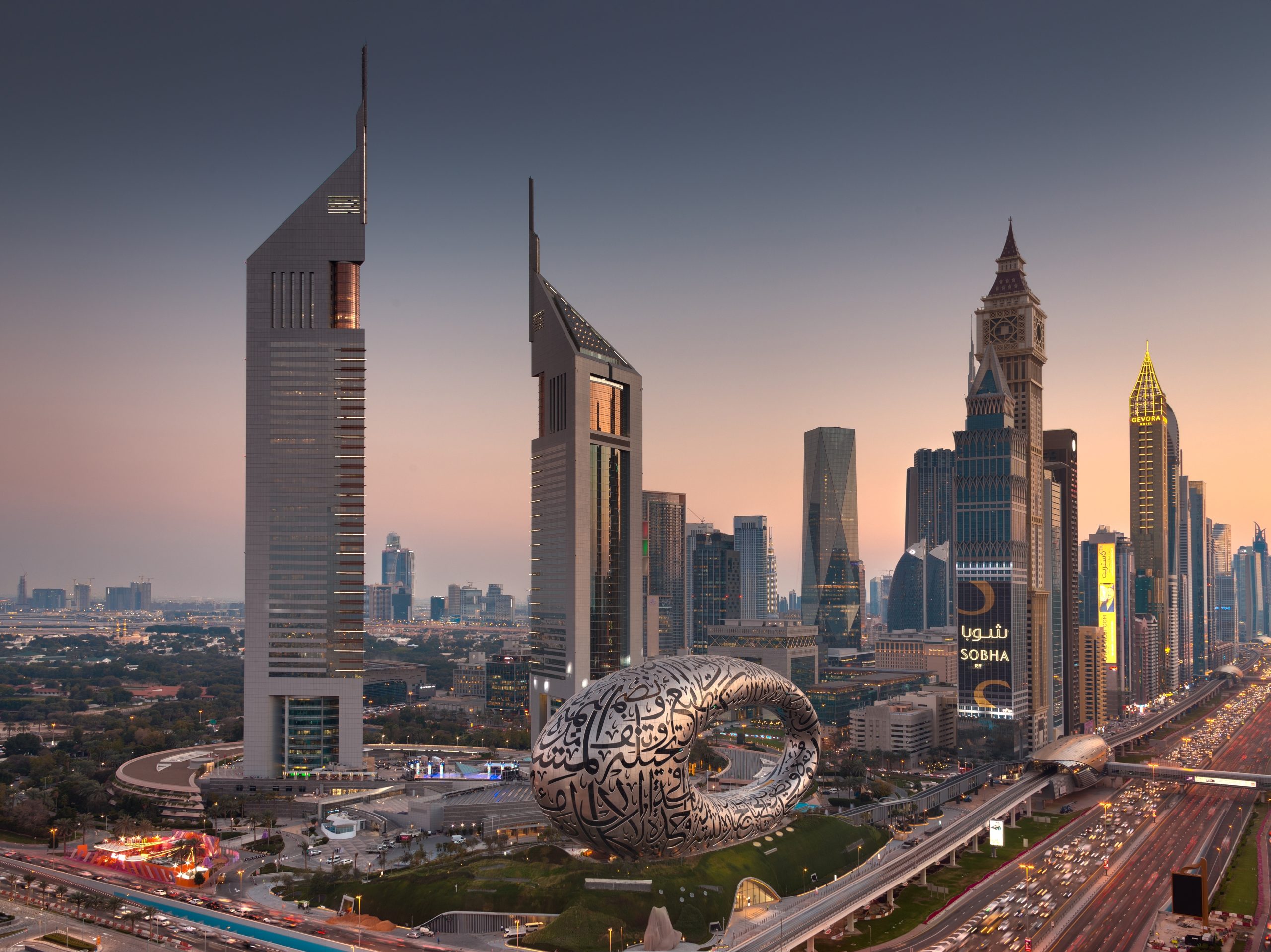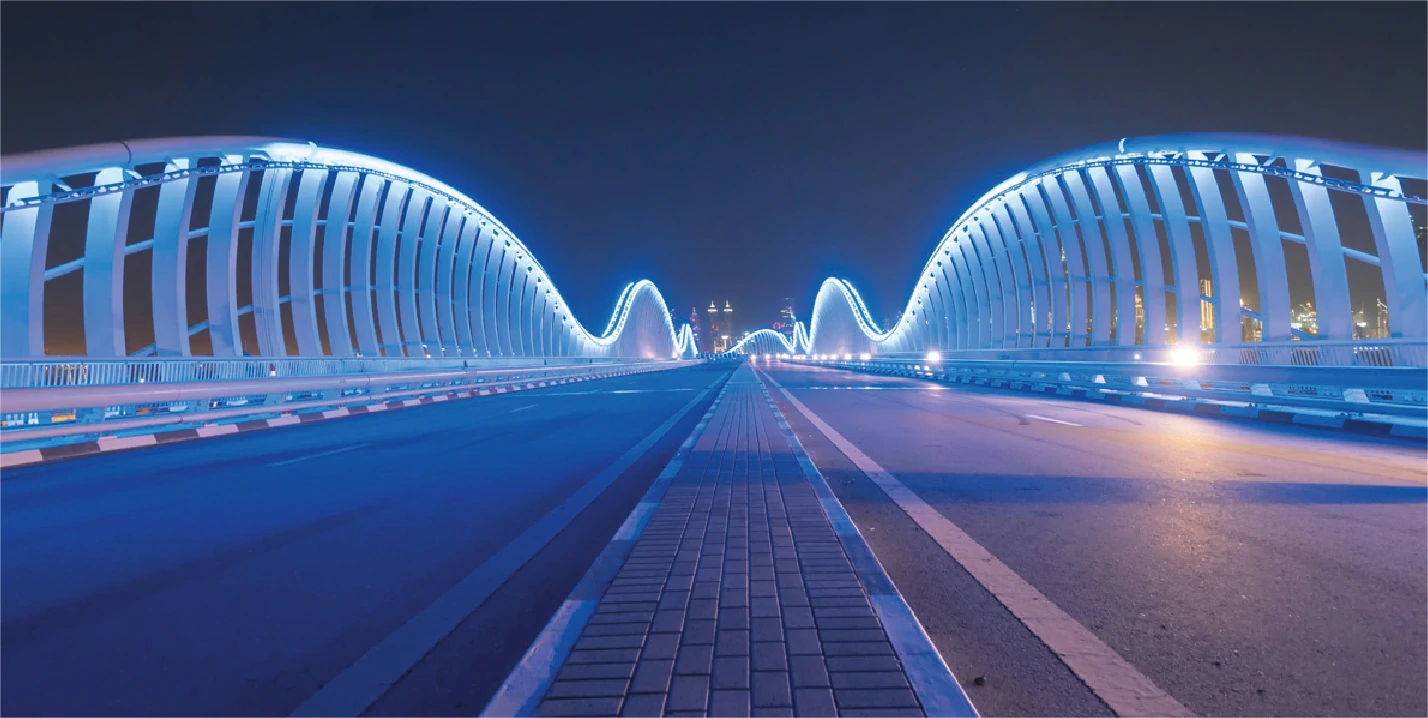The hallmark of a smart city is innovative transport systems. And so it is with Dubai, which is all set to launch air taxis by 2026. Dubai’s Roads and Transport Authority (RTA), UK-based Skyports Infrastructure and all-electric aircraft California-based company Joby Aviation have signed an agreement committing to the passenger rides.
As for how it will work, four vertiports will be developed; one near Dubai International Airport, one in Palm Jumeirah, one in Downtown Dubai and one at Dubai Marina area from where the eVTOL – electric vertical take-off and landing – aircraft can operate. A journey from the airport to Palm Jumeirah is expected to take 10 minutes by flying taxi, compared with 45 minutes by car. The flying taxis can carry one pilot and four passengers and can fly at a maximum speed of 320 kilometers per hour.
The aircraft that will be deployed for this purpose will be the Joby Aviation S4, which has six propellers and four battery packs. It is 100 times quieter than a helicopter and can take off and land vertically.
Initiatives like these have ensured that Dubai has emerged as the ideal host for the 30th ITS World Congress in Dubai. The international event is organised by ERTICO – ITS Europe and RTA. It will be held in the city from September 16 to 20, 2024.
The ITS World Congress serves as a platform for thought leaders, policymakers, industry experts, and innovators to exchange ideas, showcase advancements, and chart the course for the future of transportation.
RTA’s Strategic Mobility Plans
RTA has an ambitious plan to create a 20-minute city. The Strategic Plan 2024-2030 is designed to support the development of roads and transit systems, so they ensure that 80 percent of daily services are accessible within a 20-minute journey by walking or cycling.
And so, Dubai has been investing in several initiatives to ensure the smooth running of the city. One such project is the Dhs700 million Al Khail Improvement Project. This plan will see work on 6,820 metres along Al Khail Road, and will include Zabeel, Meydan, Al Qouz 1, Ghadeer Al Tair and Jumeirah Village Circle areas. The main aims of the project are to widen the existing road’s capacity, ease congestion and to make it easier for traffic to move freely.
Other projects aimed at easing congestion on the roads include Dhs 689 million plans for Hessa Street, the Al Shindagha Corridor Improvement Project and the Umm Sequeim Road Project.
It’s not just the roads that are getting an upgrade, so are pedestrian crossings. The Smart Pedestrian Signals project is one that works based on sensors connected to a ground optical system synchronized with the signal’s light operation. “It perceives the pedestrian movement on the pavement (before crossing the street) and on the pedestrian crossing (while crossing). This significantly enhances pedestrian safety while also boosting the efficiency of traffic light operations and ensures better management of signal timing,” Mohammed Al Ali, Director of Intelligent Traffic Management Department, Traffic and Roads Agency, RTA, was quoted as saying by Dubai Media Office.
Autonomous automobiles
Among the initiatives currently being tested is the deployment of self-driving vehicles. In December, His Highness Sheikh Hamdan bin Mohammed bin Rashid Al Maktoum, Crown Prince of Dubai and Chairman of The Executive Council of Dubai, went on the first demo ride of the Chevrolet Bolt-based Cruise autonomous vehicle (AV) in Jumeirah 1.
Prior to this, in April 2023, Cruise had already started digital mapping preparations for self-driving Cruise vehicles in an area of Jumeirah 1 under the guidance of safety drivers. The process involved using Cruise’s HD mapping technology of the surrounding environment using specially equipped mapping vehicles, fitted with sensors and cameras.
“Autonomous vehicles will play a pivotal role in offering innovative solutions for transportation challenges, curbing urban congestion, and elevating road safety,” he added.
Dubai also has the world’s longest, completely automated, driverless metro line. The city’s Red Line, which connects the heart of Dubai to the rest of the city, is still by far the longest single driverless metro line in the world.
And now the city is working on expanding its network with the Blue Line, which is expected to begin operations in 2029.
The focus the RTA is putting into its public transport systems is paying off.
Cutting-edge tech
Another interesting initiative being undertaken by RTA is the trial of a smart robot that will monitor violations concerning soft mobility means in Dubai, starting this month.
The robot uses cutting-edge tech and can identify violations with more than 85 percent accuracy. It gives data feedback in five seconds and has a surveillance reach of two kilometers. It’s also designed to operate under various weather conditions. It’s also been kitted out with sensors, so it responds and comes to a halt whenever it comes within 1.5 metres of any object or individual.
Other initiatives being considered are a Floc Duo Rail system, which is double-track system that allows transportation units to move quickly, and a rail bus system. This system travels on a bridge with solar panels, which generate the electricity it needs to function.
Dubai is set for the 2024 ITS World Congress, the premier event in the realm of smart mobility and digitalisation of transport. And the city has plenty to contribute in terms of strategy and planning.
The congress fosters partnerships between public and private sectors, academia, and industry stakeholders, and it aims to accelerate the deployment of innovative solutions and drive meaningful change on a global scale.
Just like Dubai is doing.

